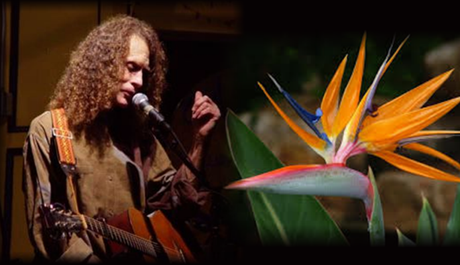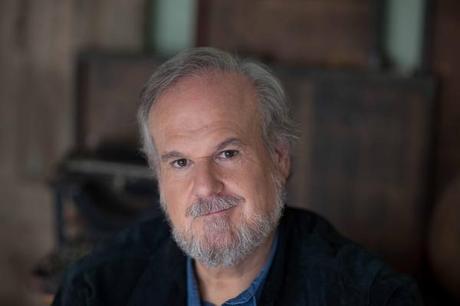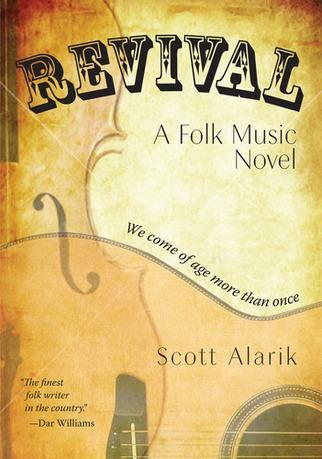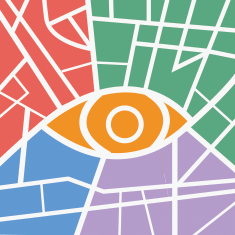notloB Music presents Tony BirdBoston Graduate School of Psychoanalysis notloB Music is a City Awake Boston partner.
1581 Beacon Street
Washington Square
Brookline, MA
Satrurday, December 6
Doors 7:30
Concert 8:00  "The finest, most impressive folk poet in years"
"The finest, most impressive folk poet in years"
- The Village Voice"Brilliantly original songwriter Tony Bird... wonderfully fuses African and European folk styles into songs that are clever, fun, urgent." - The Boston Globe
With his historically relevant song, "Sorry Africa," Tony Bird was one of the first white African folk singers to emerge out of the cauldron of southern Africa's apartheid, colonial and post-colonial era. This along with other topical African songs, including tributes to Nelson Mandela, would eventually lead to his performing at a Harvard University divestment concert against apartheid, where he was introduced by one of his folk heroes, the late Pete Seeger.
Bird has resided in NYC since 1980 and has played the international folk circuit since the early '70s, including established folk festivals in England, Europe, Canada and the US. Originally pegged as a southern African folk singer upon his arrival to these shores, he has grown into a diverse and contemporary international songwriter of the times. Though Bird's recordings feature other musicians, he's just as, if not more compelling as a current solo artist.
From the former British colony of Nyasaland, this Malawi-born song man is a complete original. With a mesmerizing intensity, his voice, vision, guitar style and persona are unique in all of folk music. Bird's African roots have produced a performer with a far-ranging repertoire that includes exotic travelogues from mountains with misty landscapes to desert and bushland filled with lions, birds, bushmen, mangoes, monkeys, sunsets and bicycles. All this savannah-laden tropicana is interspersed with narrative tales of darkness or delight, topical and historical commentary, love songs, musical tone poems, rallying cries of inspiration and a whimsical sense of humor.
Bird's rich geographic and cultural background has spawned a music of diverse influences. Drawing from the southern African mbaqanga and kwela rhythms, Afrikaans boeremusiek and even calypso, along with the folk, blues, country and rock of England and America, Tony's music is an original amalgamation of all these styles, which he loosely describes as "African Folk-Rock." He creates the sound of a full band with his unique slapping, percussive guitar picking, a clicking mouth and an energetic stomping left foot. With a raw organic quality, his grainy voice breaks into growls, whispers and falsettos contrasted against sophisticated painterly lyrics.
Formerly exposed to the impact of modernity on the African landscape, Bird has an inherent indigenous and environmental thread running through his music. Not surprisingly, he has performed at various nature conservancies, including the Rachel Carson Institute where he was presented with an award. While some of his songs take audiences on exotic safaris into the African bushland, others are deep, humanistic journeys of the soul.
Bird had two early vinyl albums released on Columbia in the '70s, "Tony Bird" and "Tony Bird of Paradise." The latter garnered acclaim in a 1986 People Magazine critics' poll as one of the top 10 albums of all time. "Sorry Africa," his 1990 Philo/Rounder release, features fellow southern African musicians who have supported a long line of African roots and world music stars from Hugh Masekela to Miriam Makeba and Harry Belafonte, as well as Paul Simon's South African-influenced "Graceland." Bird's early releases pre-dated Simon's by at least a decade, Simon even calling Bird about South African musicians to use in the finishing of "Graceland."
A new Tony Bird CD is in the works which will feature the above "name" South African musicians, including one song with Ladysmith Black Mambazo, who became enamored of Tony's music when he toured with them in the '80s. In the early '90s, he also toured with South African stars, the late Simon Mahlathini and the Mahotella Queens. After a six year hiatus due to hand problems, Bird returned to performing and touring in 2003.
Tony Bird's artistic prowess has not gone unnoticed in other quarters of the established music world. Based in London in the mid '70s, he was initially signed for a brief period to Elton John's Rocket Records label. However, they soon shied away from his "uncategorizable" style and sound. Bird's talents have also been recognized and commented on by stars such as Bob Dylan and the late Bob Marley. When asked who he was listening to, during a WBAI radio interview in the late '70s in New York City, Marley replied that he'd been listening to this "white cat from Africa," Tony Bird, singing for his South African black brothers in their struggle against apartheid. Then in the mid '80s, when Bob Dylan came across his music, Bird was slated to be signed to the record label that Dylan was planning to start at the time. However, the label never came to fruition. It was also not surprising that Tony's musical and political roots would draw the attention of civil rights singer Odetta, who was supportive of his stance when he first came to the US. The two ended up billed together; this eventually led to his writing her a heartfelt tribute.
Growing up in the era of colonialism and apartheid, Bird developed a sharp, conscious universal eye. That same urgency and relevance permeate the expanse of his new music, which now reflects his American and intercontinental experience as well as his African roots. Tony Bird has been called "The Father of African Folk-Rock," yet he is even more. He's an inventive, passionate, theatrical performer who delivers the deeply moving and searching anthems of a mature poet. Some of these songs are extended odes to life that seem to draw from the wisdom of another time and place. Altruistic, involving and engaging, his performances generate attentive enthusiasm even with small club audiences. This rare bird of eloquent song will fly into your soul and the extraordinary experience of a Tony Bird concert is not to be missed.


Tony's website Facebook event
Tickets on sale through eventbrite.com
Students and seniors - $15 - special price does not apply to premium seating
Premium (first two rows) - $25
General admission (early bird through 11/20) - $17.50 - special price does not apply to premium seating
General admission after 11/20 - $20.
If not sold out, tickets will be sold at the door, first come-first served.
"A 10 day social impact festival is coming to Boston! From December 4- 13, City Awake will bring together more than 170 partner organizations to connect and celebrate Boston's dynamic social impact community. Featuring over 50 planned events including panels, presentations, and hands-on workshops, City Awake will showcase and strengthen the diverse and impactful work being done by Boston's impact sector. Learn more at http://cityawake.is."
#cityawake 
